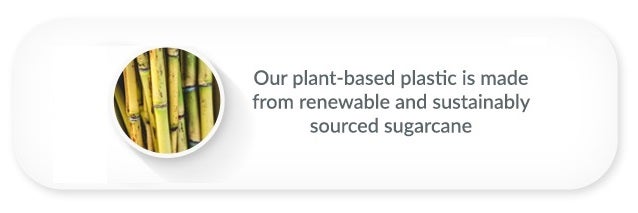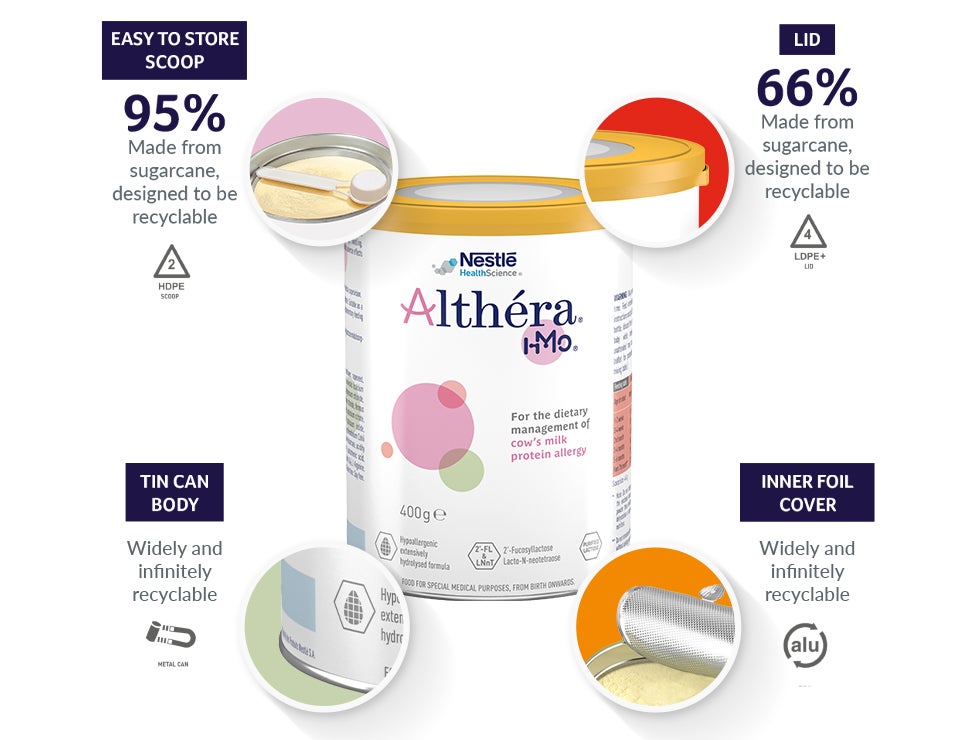
Nestlé Health Science introduces plant-based lids and spoons in medical nutrition products

Nestlé Health Science introduces plant-based lids and spoons in medical nutrition products
Nestlé Health Science has taken a significant step in its sustainability commitments and has begun to replace fossil-based plastic in a number of its pediatric products with a plant-based plastic alternative.
We push the boundaries of science to provide medical nutrition solutions that enable healthier lives, and now we’re putting that same passion into pioneering new packaging to contribute to a healthier planet.
Nestlé Health Science is introducing the new packaging material for its Althéra®, Alfaré®, Alfamino®, Modulen® IBD and Peptamen® Junior brands. This new plant-based packaging will also be available for Nestlé’s infant formula brands
OUR COMMITMENT
Delivering safe and high-quality nutrition to support lifelong health is our commitment. Of course, our health is bound up with the future of the planet. That is why Nestlé has set itself ambitious sustainability targets.
When it comes to meeting these targets, improving our packaging is a major priority and we keep three essential criteria in mind: Safety, recyclability and when possible, an increased use of renewable material.
We have found a solution that delivers on all three criteria: plant-based plastic.
AN INNOVATIVE SOLUTION
Plastic is traditionally made of fossil fuels, a limited resource that takes millions of years to replenish.
Through extensive research and innovation, we have been able to replace at least 66% and 95% of the fossil-based plastic in our lids and spoons, respectively, with a renewable plant-based plastic, from responsibly and sustainably sourced sugar cane, without compromising on the safety or quality.

Here’s how the process works
For about 65% of the mills where we source this material, we follow a very particular process.

